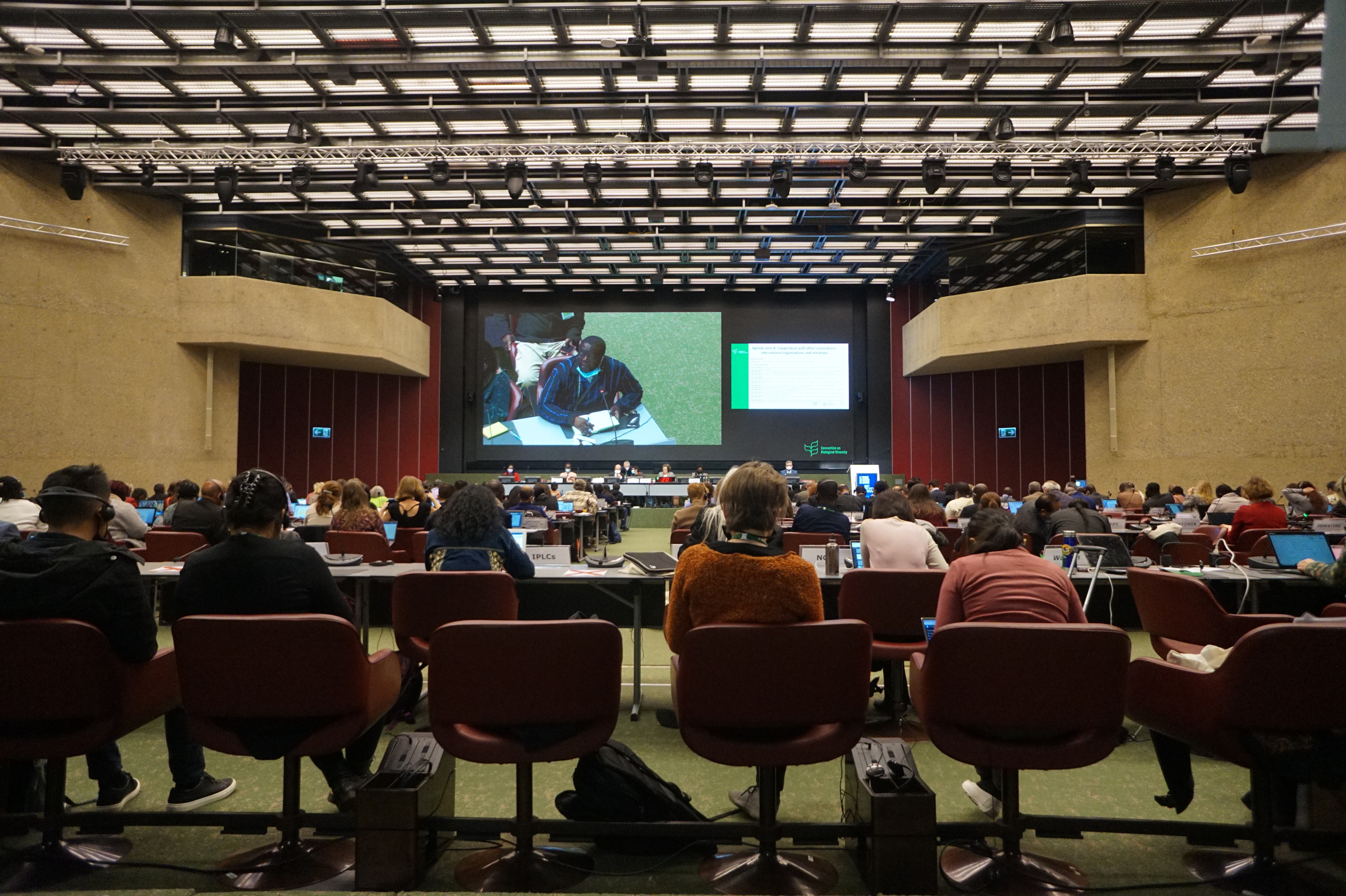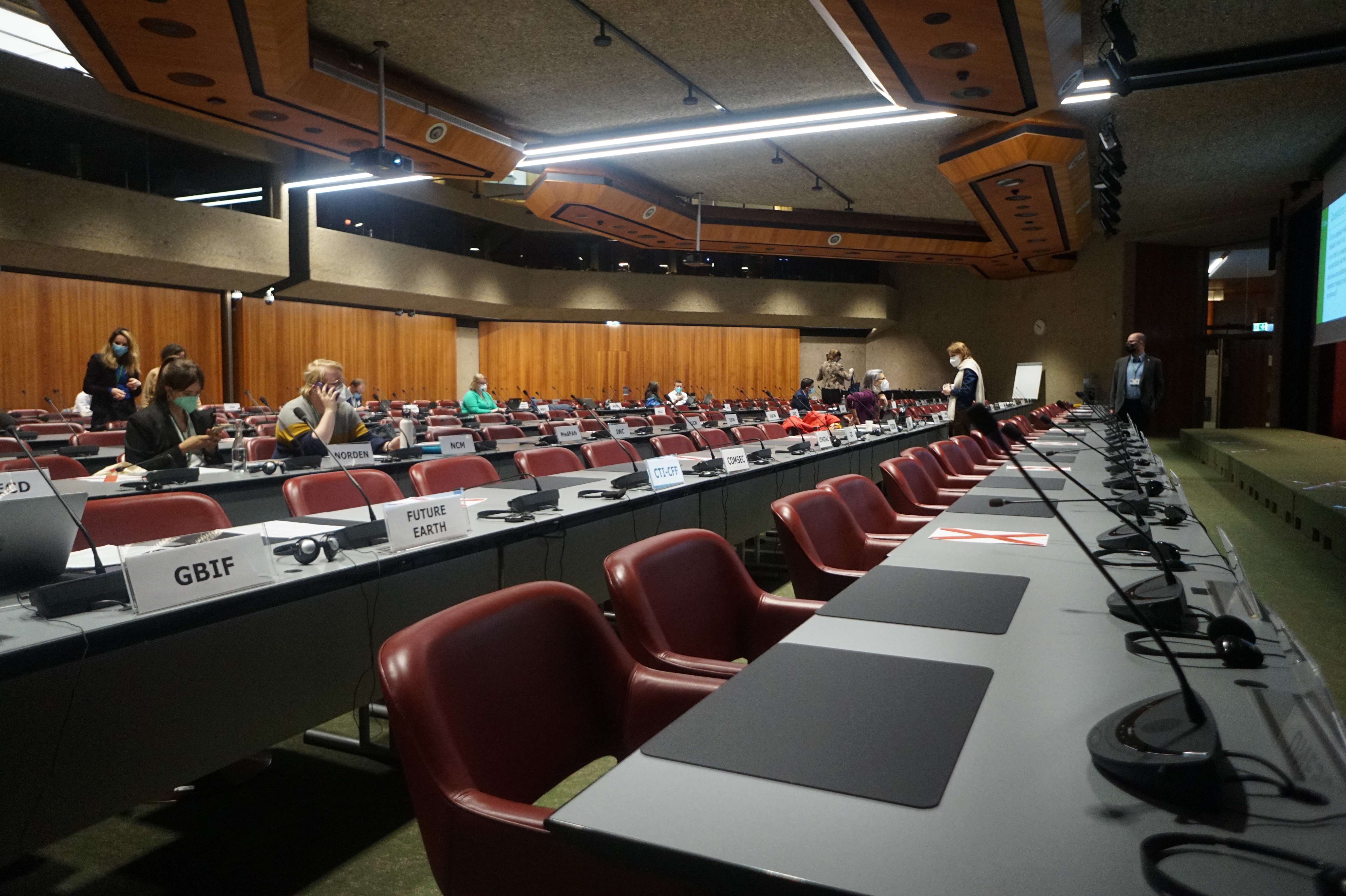[FMAL-07] Introduction to Talking
Wait, what was yesterday? Isn’t this a newsletter about biodiversity negotiations? Doesn’t this guy have a Ph.D.? Isn’t it a bit pathetic that he’s externalizing his anxieties in a newsletter header at midnight after a day’s work?
The answer to all of these questions is yes! Good old me, Bernard Soubry. Welcome back to Fondue, and Maybe a Lake. This is your seventh email.
Let’s talk about talking a little bit.
The Plenary is a type of meeting, and it is also a room. You go to Plenary in the Plenary. It has to be big enough to fit all of the following, from the front of the room to the back:
- Parties (the countries who signed the Convention)
- Non-parties (the countries who didn’t sign the Convention but are here anyways, ahem, US)
- Observers (organizations who are not Parties but who are allowed to talk)
- Other folks (people who aren’t parties or organizations and who can’t talk, and are there just for kicks, I guess? Or who are a reporting bulletin.)
Which makes for a pretty big room. If you sit at the back—which I do, six hours a day—you can just about make out that there are people up on the dais. The room is basically a garden of chairs leading up to a long table of bureaucrats.
The dais is where whomever’s in charge of whatever meeting sits; they alternate between a delightful variety of names (co-chair; co-lead; facilitators), and they have a computer that tells them who wants to speak.
If you’re sitting in the room and you want in, you have a couple of choices. If you’re a party, you press the little button on your microphone and you get added to the list. If you’re not a party, you press the button and you get added to another list that the dais gets to once the first list is done. If you’re me, you are grateful you don’t have to speak, because once you’re on, your mic turns red, which is the sign that the Eye of God is upon you and that you’re about to see your face blown up on a wall-sized screen.

Bernard, I hear you say! Surely this arrangement leads to passionate exchanges between countries. Alas. To speak, you go through the dais, and you follow the order of the list; so discussions in most rooms (except for sneaky, backroom stuff that we’ll get to later) become long games of ping-pong between the facilitators and everybody else.
But Bernard! I hear you say. Surely this must mean that facilitators handle discussions with an iron grip, and can manage to extract progress from even the most intractable discussions. Again, there, that was a bit of a hopeful assumption.
There’s a weird paradox in UN processes: discussions are party-driven, which means that it can never look like the people running the room are making decisions that weren’t explicitly given to them by countries. But also, and in words that have now become a grating repetition in my ear, the parties in plenary are in the Chair’s hands, which means that they can never seem to force the discussion to go somewhere the dais doesn’t want it to go.
Which leads to a delightful moment from today: one delegate getting exasperated that the Chairs had suggested setting up an informal group and really getting into it, winding up: saying that it was insane to do this amount of work with so little preparation, that he hadn’t eaten lunch yet (it was six o’clock), refusing to proceed any further and holding the gun to temple of the entire process if he had to—but of course, parties are in the Chair’s hands, it’s totally your decision, just. You know. I’ll burn the place down.
Does this seem insane like an insane way of doing things? It’s possibly because I’ve averaged five hours of sleep a night for the past week, and my writing has degenerated (I can’t tell any more); and possibly because it is, indeed, insane.
It makes sure that national governments get to say stuff with marginal right of reply from others; it prevents anyone from actually speaking to each other in an official context. It puts the people who are generally most vulnerable—women, youth, Indigenous peoples—and those who are most expert at the very back of the room, and makes sure they can only speak once everybody else has gone. And it makes an atmosphere where the safest thing to do when you’re called upon to speak is to read something that your legal team came up with off a piece of paper.

Some call it absolutely impossible; some say it stops wars. I remember talking to an old-time delegate a few years back, who sighed a two-whiskeys-deep sigh at my incomprehension and said, “Of course it doesn’t fucking work, Bernard. They’re not supposed to work, and it’s total accident when they do. Fundamentally, what these Rio conventions are—climate change, biodiversity—are preliminary peace talks. Just making sure we know how to keep talking.”
Oof. So. That was running in my head today a lot while not much got done : me, at the back of the room, like a shipwrecked Tom Hanks trapped on his distant sandbar. And this whole sea of delegates and members and observers all still in the contact group, like a school of fish out there, not swimming, but inexplicably surfaced, looking up at the sun.
One day to go til we get a one-day break,
B
